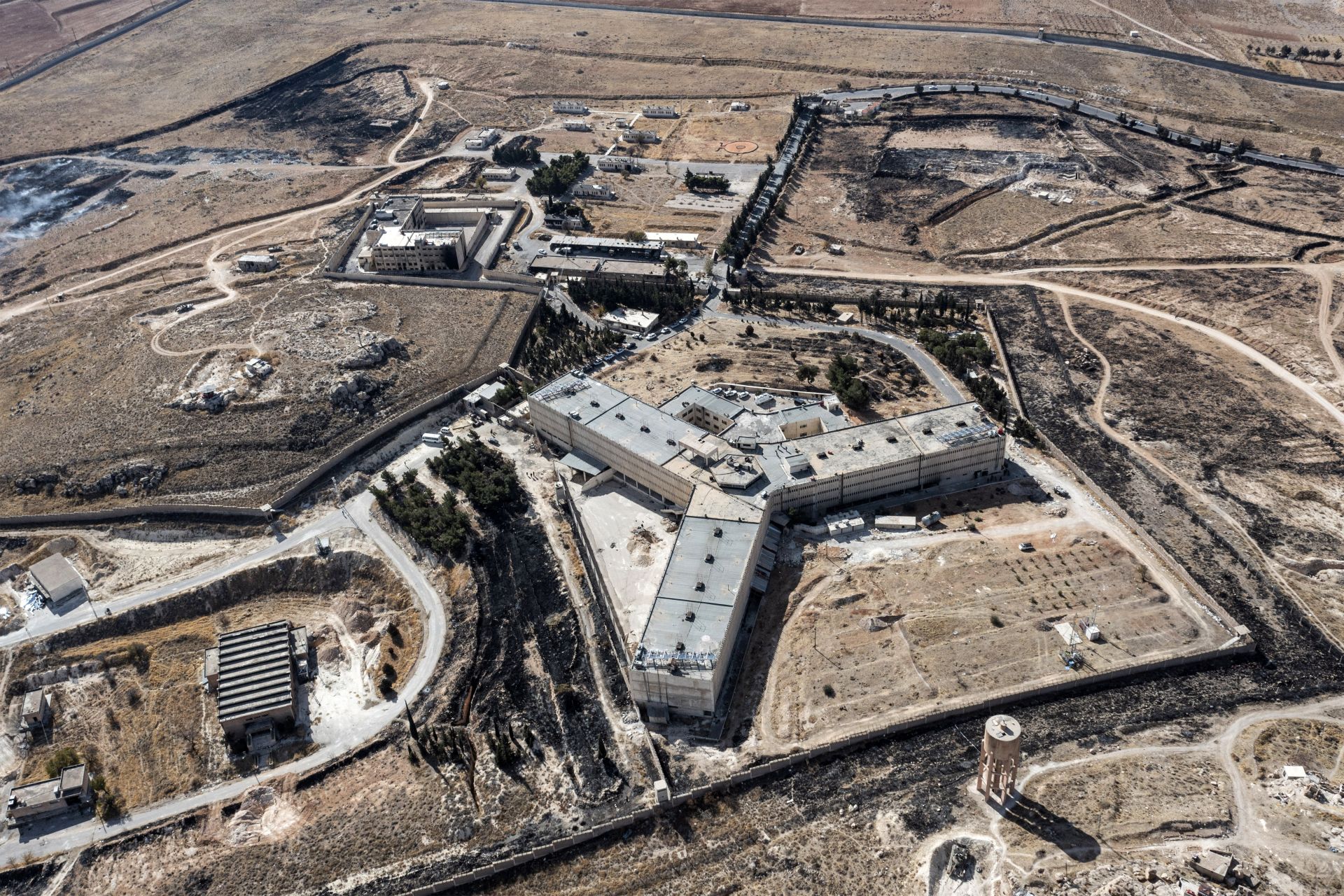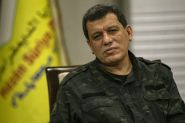- Home
- Middle East
- Rights Groups Urge Protection of Evidence of Assad’s Abuses

This aerial view shows the prison of Saydnaya in the town of Saydnaya, about 28 kilometres north of Damascus, on December 16, 2024. Islamist-led rebels took Damascus in a lightning offensive on December 8, ousting president Bashar al-Assad and ending five decades of Baath rule in Syria. ©Photo by Sameer Al-Doumy / AFP
Three rights group on Monday appealed to Syria's new rulers to urgently preserve evidence of atrocities committed under former president Bashar al-Assad.
Such evidence -- including government and intelligence documents as well as mass graves -- will be essential for establishing the fate of tens of thousands of people forcibly disappeared, and for prosecuting those responsible for crimes under international law, the groups said.
"The transitional Syrian authorities should urgently take steps to secure and preserve evidence of atrocities committed under the government of former president Bashar al-Assad," said Amnesty International, Human Rights Watch and the Association of Detainees and Missing Persons in Sednaya Prison (ADMSP).
The Saydnaya complex, the site of extrajudicial executions, torture and forced disappearances, epitomised the atrocities committed against Assad's opponents.
"Every additional minute of inaction heightens the risk that a family may never discover the fate of their missing loved one, and an official responsible for horrific crimes may never be brought to justice," Shadi Haroun, ADMSP programme manager, said in a statement issued by Amnesty.
The statement said investigators from the three organisations visited detention facilities, mass graves and the military court after Islamist-led rebels toppled Assad on December 8.
"In all of the detention facilities visited, researchers observed that official documents were often left unprotected, with significant portions looted or destroyed," the groups said.
They said they gathered testimony that security and intelligence personnel burned some material before they fled, but in other cases the armed groups who took control of the facilities, or newly-freed prisoners, also burned and looted material.
The researchers said they themselves saw ordinary people and some journalists "take some documents".
"These documents may contain vital information," the watchdogs said, calling on the new authorities to coordinate with fact-finding bodies created by the United Nations, "after urgently securing these locations and ensuring that the remaining evidence is not tampered with".
The rights groups said they also underscored to Syria's new authorities "the importance of securing the sites of the mass graves across the country", having seen "local residents and families of the disappeared try to dig up some of the remains".
They said officials from Syria's new administration had promised the visiting researchers that they would "strengthen security around key facilities".
On Sunday Robert Petit, the visiting head of a UN investigative body for Syria, said it was possible to find "more than enough" evidence to convict people of crimes under international law, but there was an immediate need to secure and preserve it.
With AFP
Read more



Comments